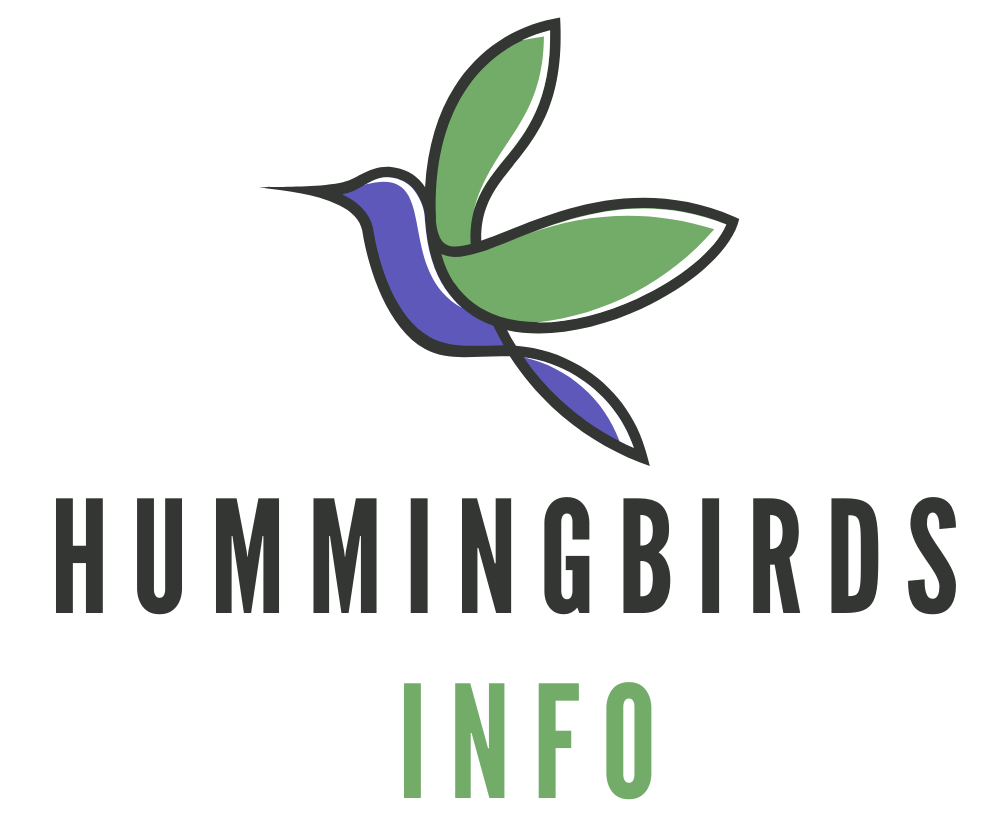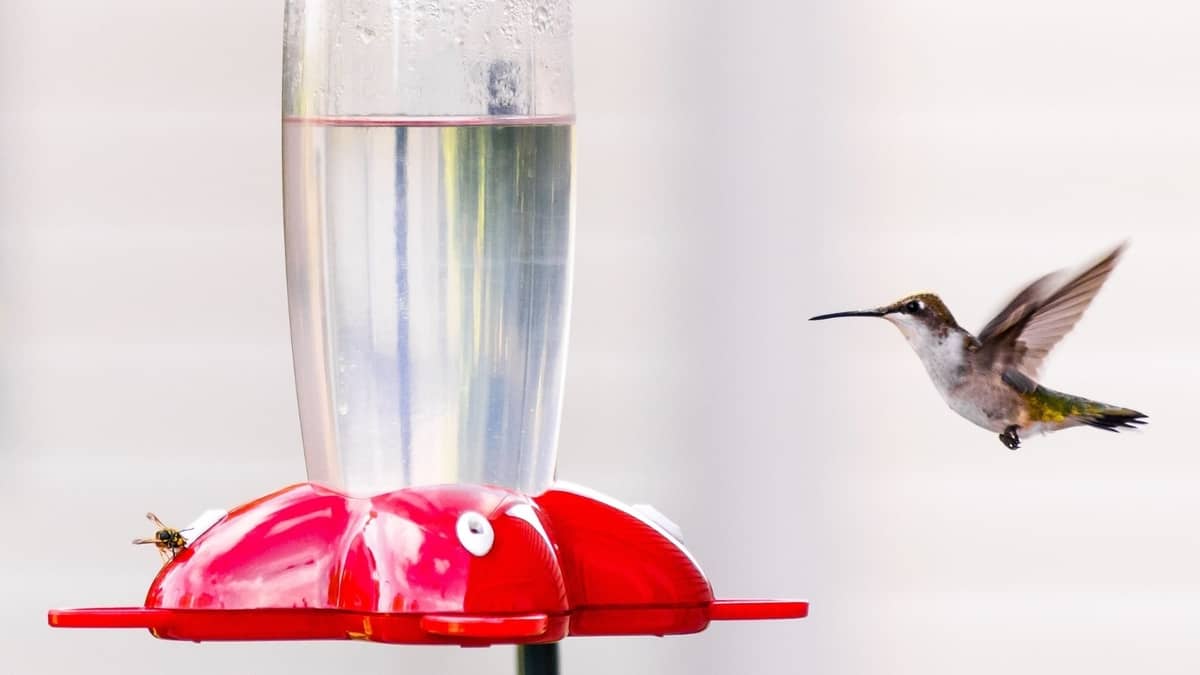It’s true our beloved backyard feathered friends eat small insects because this is one major way they derive protein to develop properly. But what about bees, wasps, hornets, and yellow jackets, do hummingbirds eat these types of insects too?
Bees, wasps, and hummingbirds are all attracted to the sweet nectar-producing flowers as well as hummingbird feeder nectar. So, it may seem logical for hummingbirds to prey on bees because they are also insects.
After all, it can make things easy for the hummingbird to simply obtain both energies from nectar and protein from insects such as bees. However don’t be deceived, this reasoning isn’t as easy as that.
This is why we would be looking into if hummingbirds do eat insects such as bees or wasps.
Do Hummingbirds Eat Honey Bees?
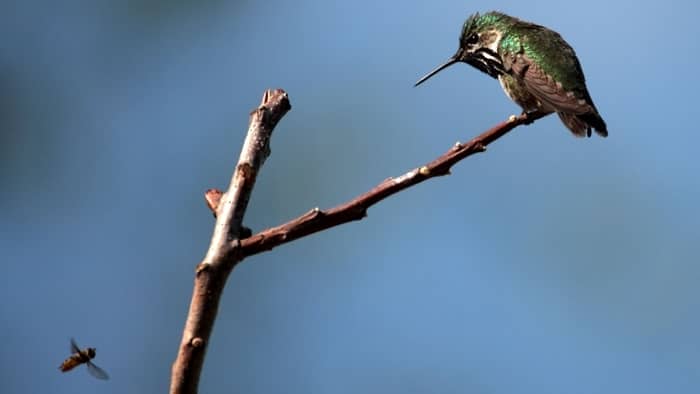
Nectar supplies hummingbirds with the required energy for their high metabolic activities. But these fast metabolic birds can’t just rely on nectar alone. They need other nutrients such as proteins, vitamins, minerals, and so on. So, the major way they can obtain these essential nutrients is by feeding on small insects.
In reality, hummingbirds do not eat bees, wasps, yellow jackets, or hornets. Bees and these other insects are pretty aggressive insects and hummingbirds would prefer to feed on smaller insects they can handle.
Also, bees tend to be too big for the hummingbird to consider them as part of their meal. Hummingbirds would have to take some time dismantling their body parts and feed on them. The bees may not be able to fit into their small beak or even swallow this insect. So, these birds would rather feed on smaller insects.
Do Bees Bother Hummingbirds?
Bees and hummingbirds have been known to compete with the same nectar from flowers as well as feeders. Hummingbirds may feed in harmony with bees if they aren’t too many of them on a feeder or nectar flower.
However, hummingbirds and bees may still end up fighting. While they fight, bees do tend to sting hummingbirds.
Once the population of bees becomes too many on a particular food source, hummingbirds may feel discouraged and abandon that food source. This is because the invaded food source becomes contaminated and will make it less enticing to hummingbirds.
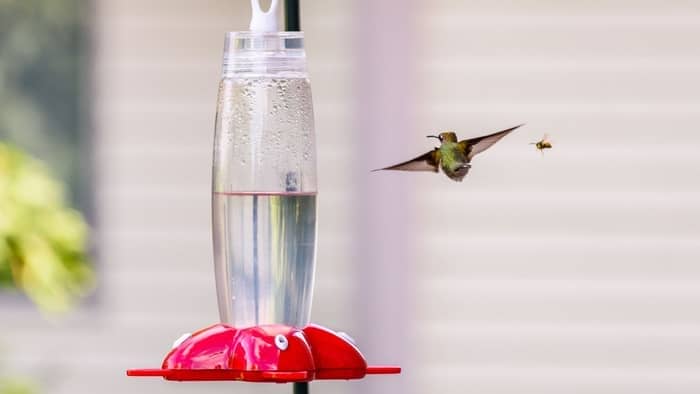
The good news is that there are measures you can take to keep these bees away from your hummingbird feeders so your sweet hummers can enjoy access to a reliable food source.
So let’s look into ways we can reduce or get rid of bees’ invasion from our hummingbird feeders.
Measuring To Keeping Bees Away From Feeders
Below are some safety measures to take to keep bees and other troublesome ants away from your hummingbird feeders:
1. Maintain A Clean Feeder
The very first and important way to keep annoying ants such as bees away from your hummingbird feeders is by always maintaining a clean feeder. Any feeder that tends to leak will always attract ants because they like sweet things.
Avoid any little spill from the feeder. Seal off any little crack that may cause the feeder content to leak out. Always clean the outer parts of the hummingbird feeders frequently. Also, clean the feeder ports from time to time.
2. Maintain A Clean Yard Or Environment
Your yard should always be clean. Get rid of the unwanted waste or things that can act as a food source for bees. Trashes that are uncovered and full of sweet leftovers such as soda cans can attract bees, wasps, and other bothersome insects to your yard.
3. Avoid Yellow Colors
Hummingbirds are known to be enticed by red colors. Yellow on the other hand attracts bees and wasps. Therefore, don’t use yellow colors to decorate your yard. Don’t go for feeders decorated with yellow.
4. Supply Bees With Their Own Food Source
Having bees in your yard or garden isn’t all that bad as they help with pollination. So, you can entice bees and other insects with a detour food source.
Hang a detour feeder in the full sun and make the sugar solution sweeter. Ensure the detour feeder is about 5 to 7 feet away from your hummingbird feeders.
Doing this will keep these insects around to help pollinate your flowers as well as keep them away from your hummingbird feeders.
5. Feeder Location
Avoid hanging your hummingbird feeders from the poles because these ants can climb the pole to reach the nectar feeder. Try to hang the feeder from a branch. You can also make use of a fishing line as a hanger. Ants may find it hard to climb a wire as thin as a fishing line.
Additionally, bees love sunny spots so hang your hummingbird feeders in a shady location. Hanging your feeders in a shaded spot will also preserve your nectar solution for a bit longer and slow down fermentation.
Extra notes: avoid rubbing or using petroleum jelly cooking oil, menthol cough syrup, and so on your hummingbird feeders. This could be harmful to hummingbirds as their feathers can get stuck when they come in contact with these sticky substances. Their bills can also get stuck by these substances. Avoid using pesticides that are made of chemicals. These pesticides can be pretty toxic to hummingbirds.
The Types Of Insects Hummingbirds Eat
We have established that hummingbirds do not eat bees. So what type of insects does the hummingbird eat?
Hummingbirds eat small insects such as fruit flies, aphids, ants, weevils, mosquitoes, gnats, mites, leafhoppers, and the likes.
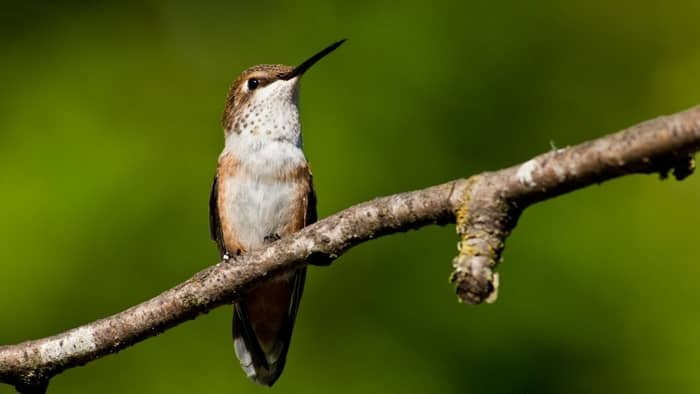
Final Say Regarding If Hummingbirds Do Eat Bees
Hummingbirds do not eat bees but they are known to eat other small insects such as aphids, gnats, mites, weevils, and so on.
Also, hummingbirds may feed in harmony with just a few bees in their food source. But when there are too many bees on feeders that bring about bee invasion, the hummingbird feeders become less attractive and contaminated to hummers. They will prefer to abandon the feeder and go look for a cleaner and reliable food source elsewhere.
This is why we need to imbibe ways of keeping these troublesome insects such as bees and wasps away from our hummingbird feeders. We have provided you with some great tips on how to go about this so do well to follow them.
